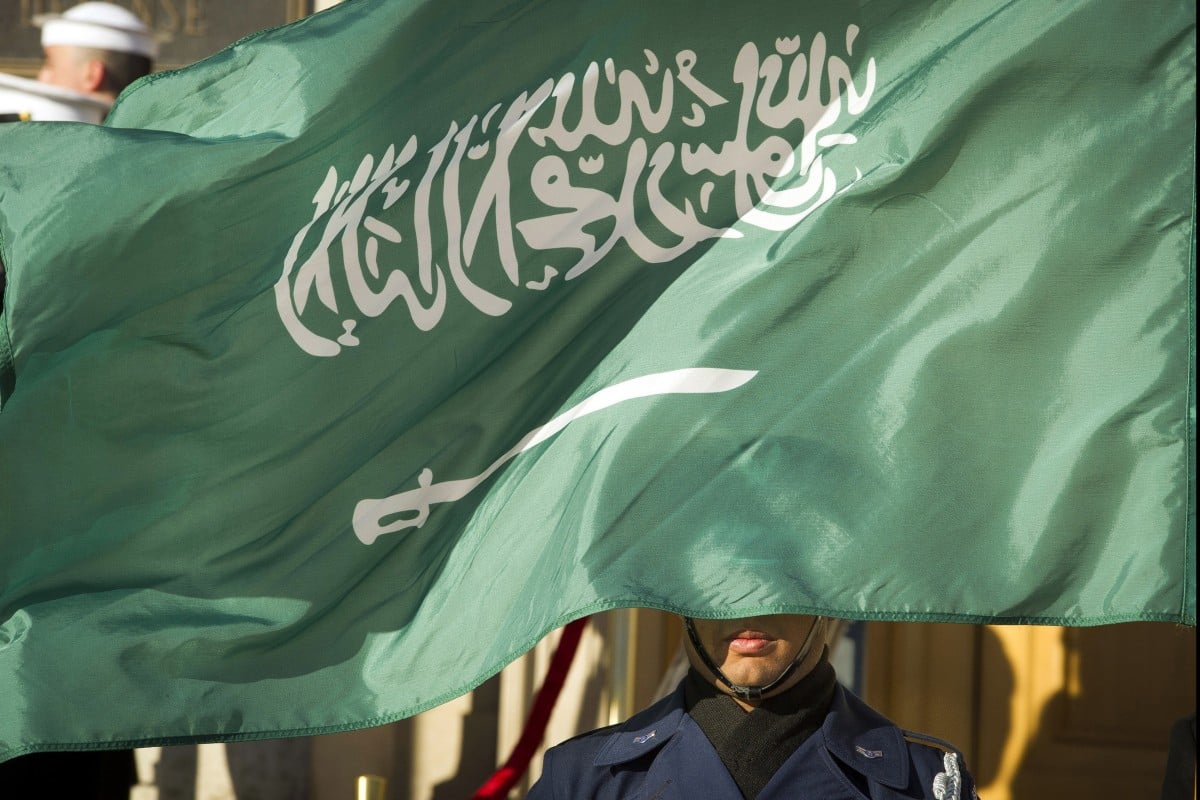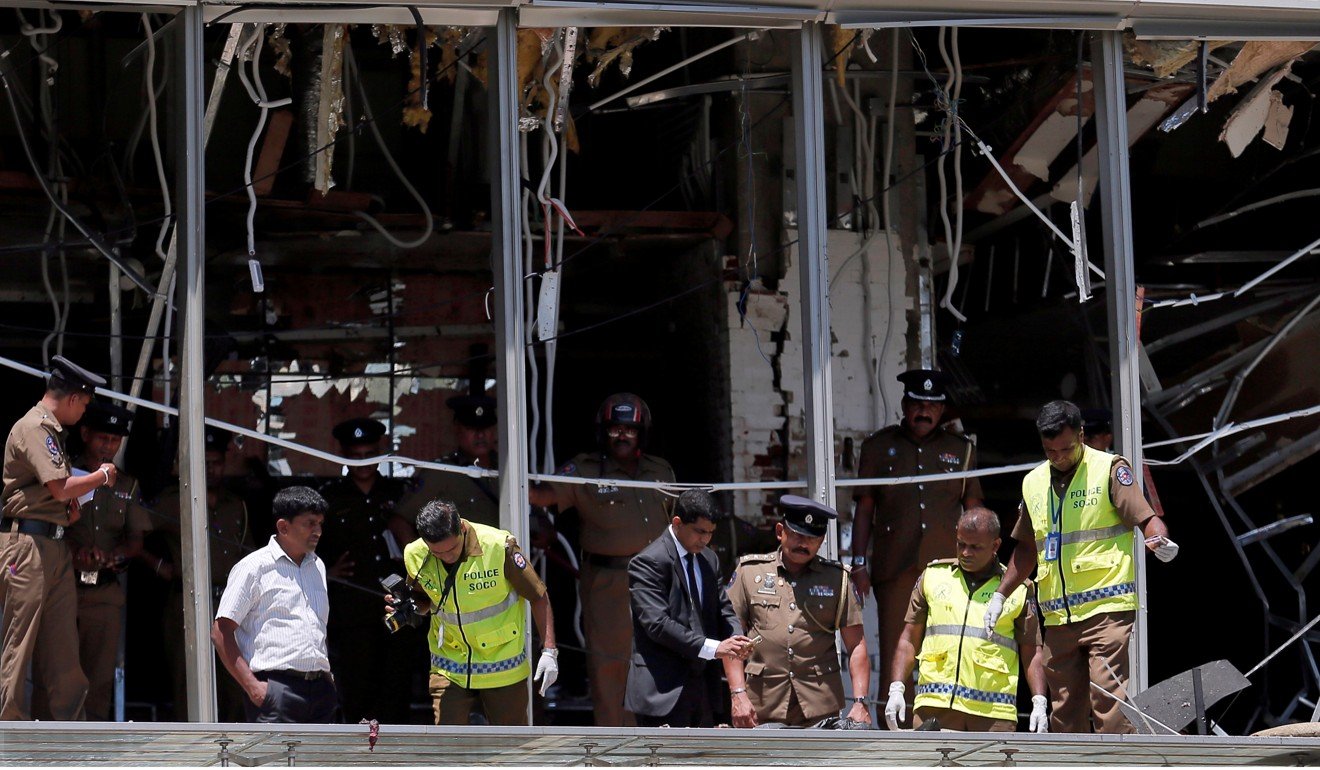Sri Lanka’s Saudi connections revealed in latest arrest over Easter bombings
Posted on May 12th, 2019
Courtesy The South China Morning Post
- Ultraconservative Salafi-Wahhabi Islam, which has its roots in the Middle Eastern kingdom, has been taking root among the South Asian island’s Muslims

The flag of Saudi Arabia. Photo: APSri Lankan authorities have arrested a Saudi-educated scholar for what they claim are links with Zahran Hashim, the suspected ringleader of the Easter Sunday bombings, throwing a spotlight on the rising influence of Salafi-Wahhabi Islam on the island’s Muslims.Mohamed Aliyar, 60, is the founder of the Centre for Islamic Guidance, which boasts a mosque, a religious school and a library in Zahran’s hometown of Kattankudy, a Muslim-dominated city on Sri Lanka’s eastern shores.
Information has been revealed that the suspect arrested had a close relationship with … Zahran and had been operating financial transactions,” said a police statement late on Friday.
The statement said Aliyar was involved” with training in the southern town of Hambantota for the group of suicide bombers who attacked hotels and churches on Easter, killing more than 250 people.

Officials inspect the site of an explosion at Shangri-La hotel in Colombo on April 21. Photo: ReutersShare:
A police spokesman declined to provide details on the accusations. Calls to Aliyar and his associates went unanswered.
The government says Zahran, a radical Tamil-speaking preacher, was a leader of the group.SUBSCRIBE TO THIS WEEK IN ASIAGet updates direct to your inboxSUBMITBy registering for these newsletters you agree to our T&C and Privacy Policy
Two Muslim community sources in Kattankudy said his hardline views were partly shaped by ultraconservative Salafi-Wahhabi texts that he picked up at the Centre for Islamic Guidance’s library around two to three years ago. The sources are not affiliated with the centre.
I used to always run into him at the centre, reading Saudi journals and literature,” said one of the sources.
In Sri Lanka, rising Islamic militancy was the proverbial elephant in the room
During that time, Zahran started criticising the practice of asking God for help, for instance, arguing that such pleas were an affront to pure Islam. TOP ARTICLES1/5READ MOREActress Alyssa Milano calls for‘sex strike’ over abortion bans in Republican states TOP ARTICLES1/5READ MOREActress Alyssa Milano calls for‘sex strike’ over abortion bans in Republican states TOP ARTICLES1/5READ MOREActress Alyssa Milano calls for‘sex strike’ over abortion bans in Republican states
That kind of teaching was not in Sri Lanka in 2016, unless you read it in Salafi literature,” the source added, requesting anonymity to avoid repercussions in Kattankudy.
Salafism, a puritanical interpretation of Islam that advocates a return to the values of the first three generations of Muslims and is closely linked to Wahhabism, has often been criticised as the ideology of radical Islamists worldwide.Wahhabi Islam has its roots in Saudi Arabia and is backed by its rulers, although Crown Prince Mohammed bin Salman has committed the kingdom to a more moderate form of Islam.

Saudi Crown Prince Mohammed bin Salman. Photo: AFPShare:
Other than the fact that Zahran visited the centre, the sources in Kattankudy said they did not know of any personal ties between him and Aliyar.
Aliyar founded the centre in 1990, a year after he graduated from the Imam Muhammad ibn Saud Islamic University in Riyadh, in what one resident said marked a key moment in the spread of Salafi doctrine in Kattankudy. The centre was partly funded by Saudi and Kuwaiti donors, according to a plaque outside.
TROUBLEMAKER
Three members of the centre’s board spoken to before Aliyar’s arrest said Zahran was a troublemaker and that they had warned authorities about his extremist views. The members, who asked to remain anonymous, citing security concerns amid a backlash against some Muslims, said they thought Zahran frequented the library around a decade ago, but had no recollection of him visiting recently and denied that any of its books were to blame for his views.
Funding for the centre came from local donations, student fees, and private donors who were classmates of Aliyar’s in Riyadh, the centre’s sources said. Further details about the funding of the centre were unavailable.
The Saudi government communications office in Riyadh did not respond to requests for comment on the funding of the centre.